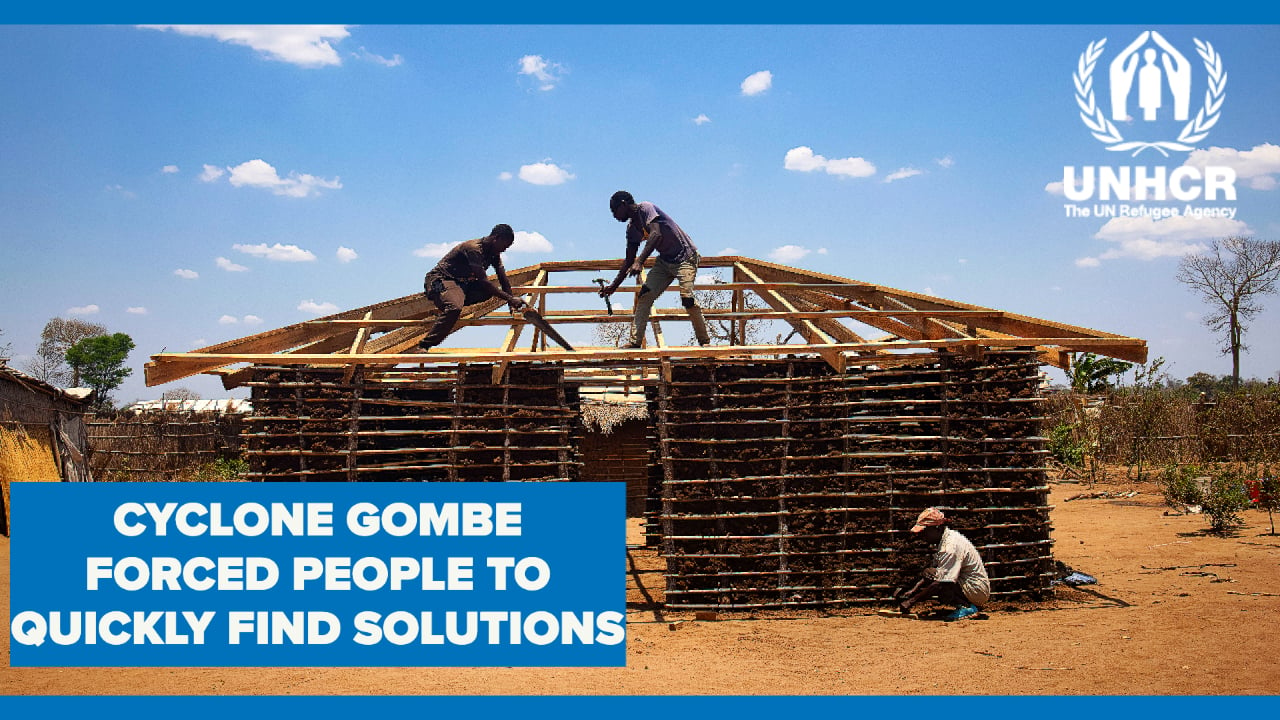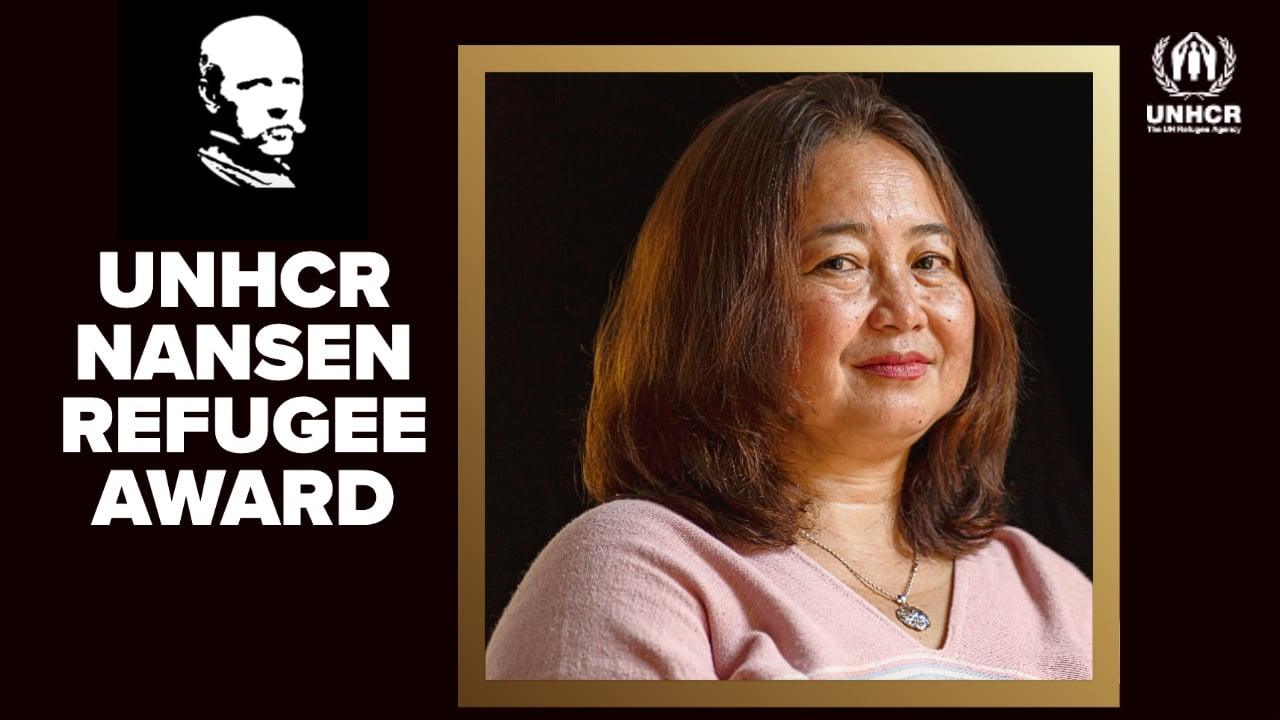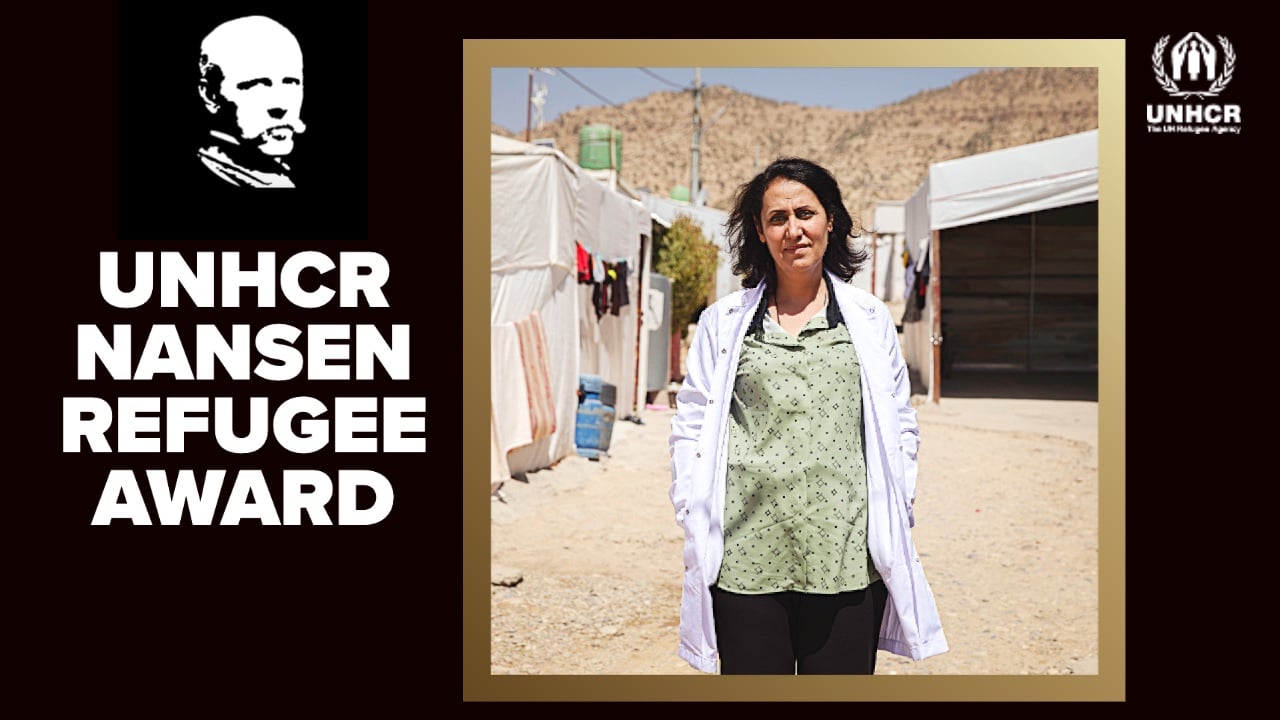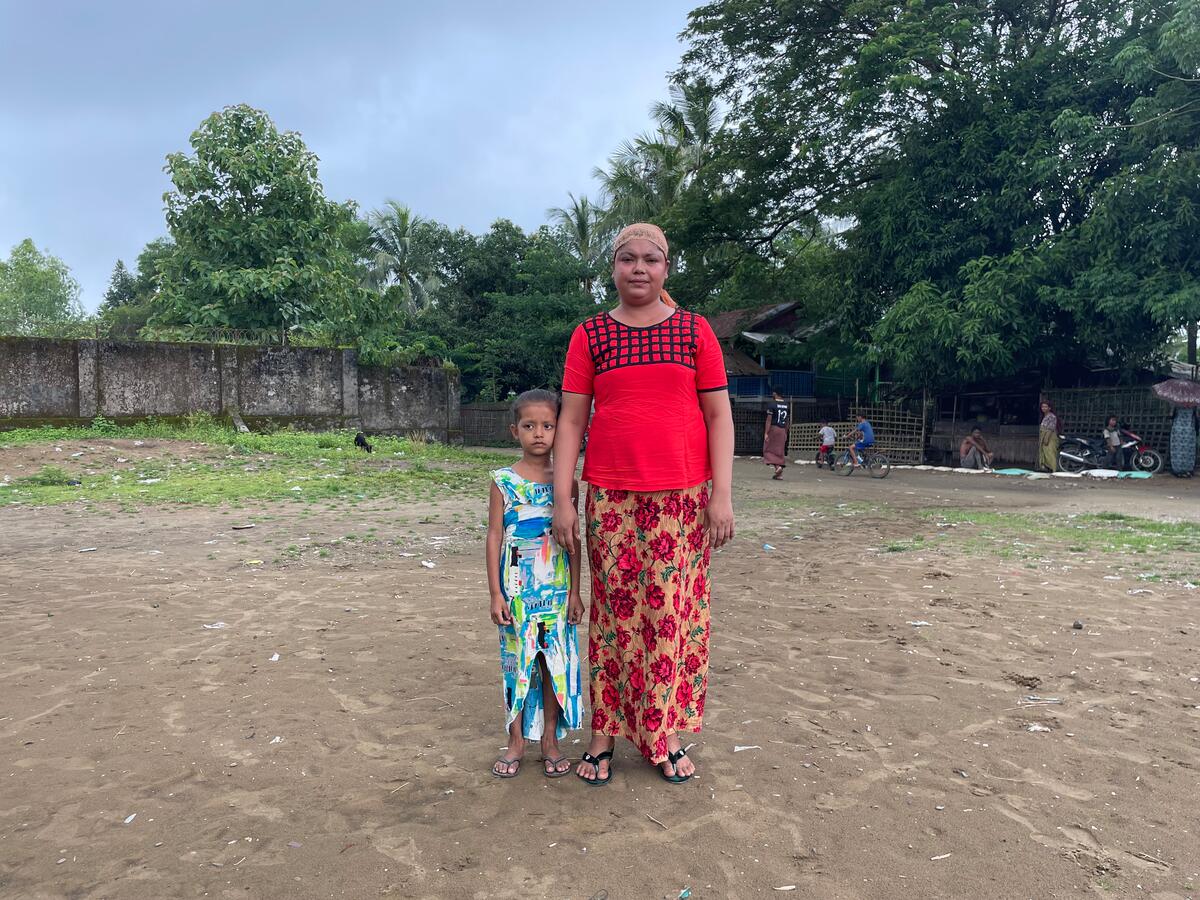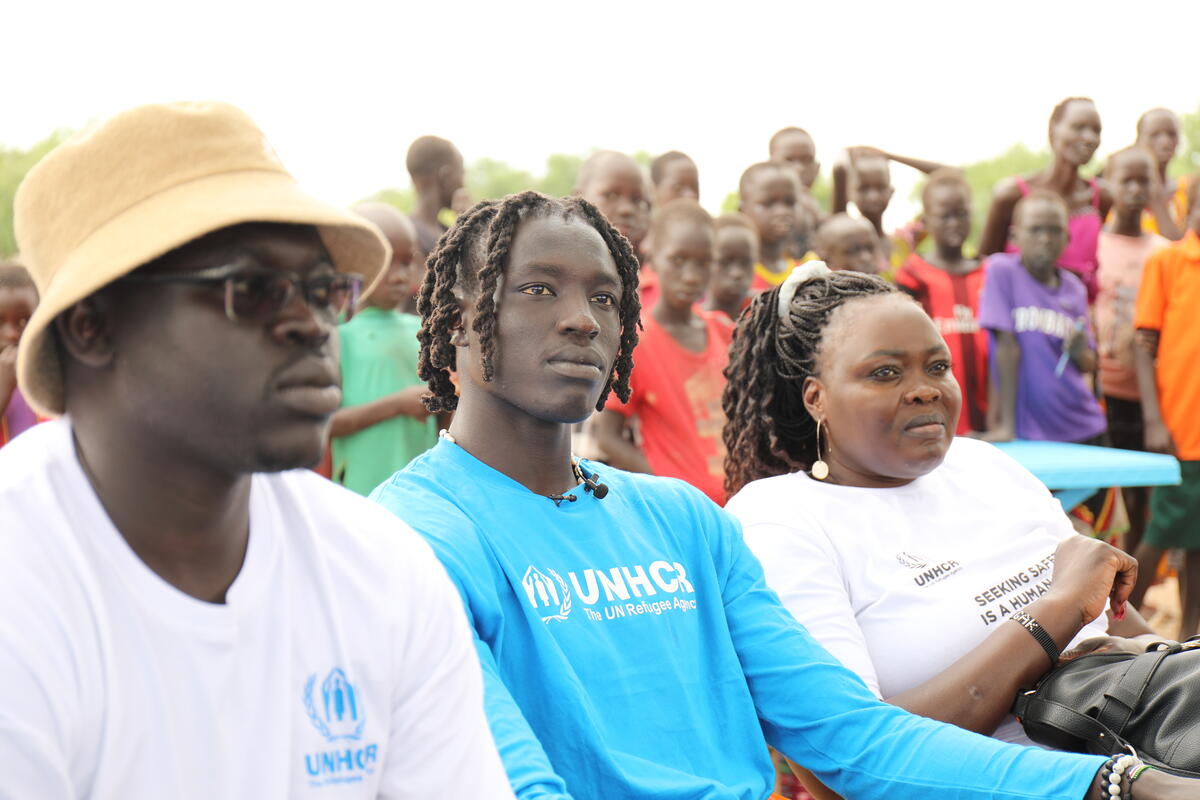South Sudan: reggae musician born in exile becomes displaced back home
South Sudan: reggae musician born in exile becomes displaced back home

JUBA, South Sudan, January 3 (UNHCR) - David became a refugee even before he was born, when his pregnant mother fled to Ethiopia in 1986. But he never imagined that 26 years later he would become displaced again, in his own newly independent country of South Sudan.
"I spent most of my years moving from place to place as a refugee in foreign lands, but nothing compares to the situation I'm in today," he says inside a UN military base that has become a sanctuary for civilians displaced by fighting over the last two weeks. "As a refugee [for 20 years] in Ethiopia and Kenya, at least I had security and basic assistance, but here we are living in a state of fear because we are unsure of what is going to happen in the next minute."
And this just a few kilometres from his own home in the South Sudan capital, Juba. A student in Nairobi, David had the bad luck to be back in Juba when violent clashes erupted last December 15, pitting government troops against forces led by former Vice President Riek Machar.
The conflict quickly spread to seven of the country's 10 states, displacing close to 200,000 people, including about 10,000 who fled to neighbouring countries. About 56,000 South Sudanese and other civilians have sought sanctuary in military bases of the UN Mission in South Sudan (UNMISS) across the country, including about 14,000 at the base in Juba known as Tong Ping where David now lives.
The conditions in Tong Ping are squalid. Aid agencies have provided some basic assistance, but most displaced people are looking after themselves. David says even those who fled with some money find it too dangerous to leave the UN compound to buy food.
UNHCR is working closely with other UN agencies to protect the displaced. "We and our partners are active in tracing separated children and reunifying them with their families, as well as in the identification, reporting and treatment of victims of sexual and gender-based violence," says Peter Trotter, UNHCR's senior protection officer in South Sudan.
Speaking Amharic, which he learned during his 14 years in Ethiopia, David recounts how he came to Juba in December to get vital documents so he could finish his studies in TV and video production in Nairobi, capital of next-door Kenya. Originally from Malakal, capital of the oil-rich state of Upper Nile, some 600 kilometres north of Juba, David had also learned Kiswahili during another stint as a refugee in Kenya.
But while collecting his documents in Juba, fighting erupted on 15 December. "It was a terrible experience; we were all terrified by the gunshots which went on well into the night, leaving us all desperate to leave our homes," he says. He finally plucked up his courage to run to the UNMISS base for protection.
"I arrived here with no money and just the clothes I was wearing," he says, managing a smile despite his grim story. "I am surviving with support from friends and other people I know."
David chose to sleep on top of one of the many shipping containers scattered around the military base, which is next to the capital's commercial airport. "As you can see, the ground is muddy and filthy and I thought the container top is a better place to sleep," he says.
But perhaps this unlikely shelter is one reason he's not yet received any of the food and other relief items handed out by UN agencies and non-governmental organizations.
The multi-lingual young man is a passionate reggae musician who has earned money performing in Ethiopia and Kenya. But his once bright future is dimming before his eyes. "I thought our terrible past was gone forever and was planning to finish my diploma and come back home to work," he says of his country, which recently celebrated its second anniversary of independence, gained after a 22-year-long war.
"But now that the situation is becoming so bad, all I'm praying for is to get the chance to leave the country" - yet again.
By Kisut Gebre Egziabher in Juba, South Sudan


